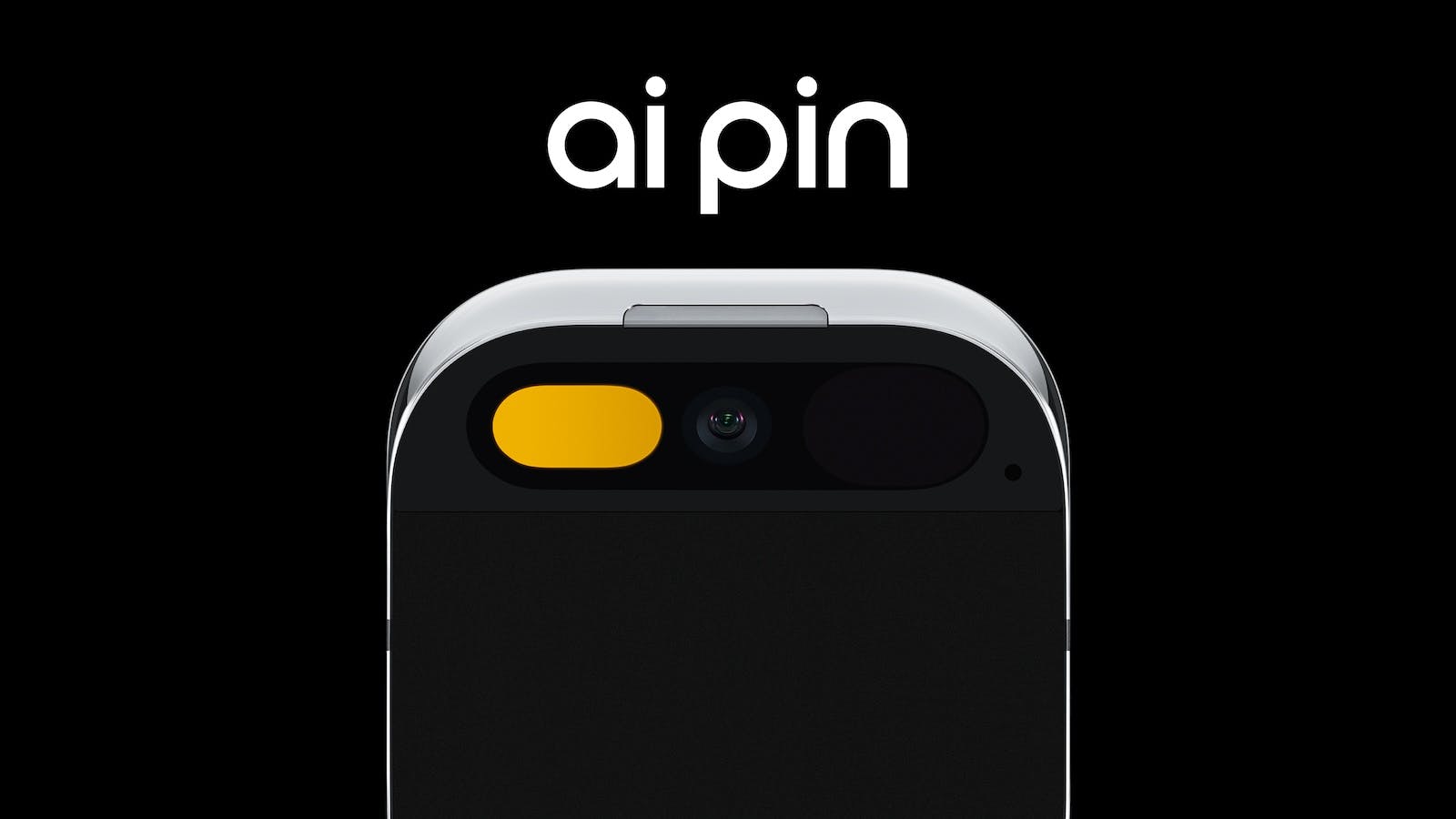
Humane AI: A Review – Potential, Pitfalls, and the Path Forward
Welcome you to the fantastic world of Human AI! Envision a planet where technological assistants in AI adapt to your life, thus making sure your needs are anticipated and your life is simplified. Imagine yourself in the morning when your AI assistant wakes you up thanks to gentle light and birdsong, makes your coffee to a perfect temperature, and even suggests outfits based on the weather and your plans. Even science fiction is helpless regarding these new technologies. In short, Humane AI’s ambitions correspond to that.


Credit: Humane Ai
Nevertheless, the availability of such ambitious achievements remains accompanied by various merits and misconceptions. Now, let’s proceed on an interactive investigation of AI that is humane, with its future to remodel our lives, and the principles that led to the controversies surrounding its development, including the recent product of Humane PIN, which was a first step towards this goal.
What is Humane AI?
The term ‘humane AI’ means using AI systems that prioritize humans’ well-being and ethical standards. This implies the development of AI that aligns with human values like fairness, transparency, and accountability. Imagine a machine that helps doctors make diagnoses and does not discriminate against people based on race or socioeconomic status.
Unveiling the Ethical Vision
The “humane AI” concept tends to gain more popularity among people as AI technology progresses. This is because AI systems are so intelligent that they might become essential to our lives. Nevertheless, it is necessary that AI is made and used in a way that will benefit people but not ruin them.
Fair: AI decision-making should not be impaired in any way.
Transparent: It is humanly good that people should comprehend the algorithms upon which AI systems depend in the future.
Accountable: There needs to be an explicit linkage between those who are accountable for AI systems’ actions and output.
Respect for Privacy: AI should be compiled and applied ethically.
If we control the creation of AI, we can create something that genuinely deserves the title “Humane” by these principles.
The Potential
The potential of these advanced AI systems is one of the most exciting prospects now.
Revolutionizing Healthcare: Detect diseases with higher precision, decide on individualized treatment regimens, and, to a great extent, even create meds to save people’s lives. Imagine an AI that can scrutinize your medical history and genetic prediction to give information on likely future health risks and subsequent prevention recommendations.


Credit: Humane Ai
Transforming Education: Develop learning experiences that are in sync with an individual’s needs, provide instantaneous feedback, and thus enhance the effectiveness of learning by creating an environment that makes learning fun through interaction. For instance, it is possible to let a virtual tutor analyze your strengths and preferences and then adapt its teaching approach depending on that.
Empowering Smarter Cities: Optimize traffic throughput, regulate energy consumption, and provide intelligent infrastructure solutions to safety issues. Envision a city that employs smart AI-powered traffic lights that automatically accommodate traffic flow and provide great traveling comfort for everyone.
Here are just a few particular but, at the same time, most promising aspects of the human AI future.
A Promise Yet Unfolding
Envision the magnanimous world of AI agents that flawlessly imbed themselves into your life, predicting your needs and creating new possibilities. A soft awakening with bird song, realistically brewed coffee, and outfit suggestions considering weather and schedule—all these ideas look like science fiction now! Human AI wishes to put them into practice.
But the journey towards this utopian state passes with both confidence and danger. Let’s start our journey in this fascinating world of Human AI by looking at its possibility to change everything for us, ethical considerations about its development, and a product—the Humane PIN—that is aimed at being the first step to this future.
What is Humane AI? Unveiling the Ethical Vision
Humane AI involves applying human norms in producing artificial intelligence (AI) systems centered on human beings and ethical rules. This denotes designing AI that is in line with human norms. Visualize an AI doctor supporting a diagnosis, excluding prejudgment based on ethnicity or social status.


Credit: Humane Ai
The idea of human-made AI gets stronger as AI technology is evolving. AI is sophisticated enough to embed itself in our lives in the future, but it is necessary to guarantee that it will be beneficial and not become harmful to humans. undefined
Fair: Free from biases and discriminations.
Transparent: The way AI arrives at decisions we understand.
Accountable: There is a highly discernible framework for AI actions.
Privacy-Respecting: AI collects the data and uses it ethically.
If we work by these rules, we can make AI that feels what it is all about.
The Potential: Revolutionizing Our World
The miracles of AI describing humans are charming. Imagine AI assistants:
Revolutionizing Healthcare: The detection of illnesses, people designing personalized treatment plans, and lifesaving medications are the technologies that have improved healthcare access for many people. Trying to simulate that, the AI reviewed your past medical history and genetics, after which it advised on the diseases you could face and how to avoid them.
Transforming Education: Integrating personalized learning, feedback in real-time, and developing motivational learning are keys to success. Forget about that tedious and boring AI tutor who doesn’t listen to you and uses a one-size-fits-all approach.
Empowering Smarter Cities: Intelligent infrastructures that help optimize traffic flow, manage energy consumption, and enhance public safety. Imagine a city where AI-powered traffic lights can automatically adjust and eliminate congestion for everyone.
Human AI represents the much larger opportunities of the future, which are just a few of the glimpses here. However, the ethical issue stands out as the most important one. We will examine the challenges and how to embark on a worthwhile ethical human AI outlook.
Ethical Considerations: Guarding the Promise of Humane AI
The humane AI potential is genuinely incredible, which makes the ethical factors of this field of study of AI of central importance. undefined
Guarding Against Bias: AI trained on biased data sources can reproduce subtle discrimination. Conceptualize a computer algorithm that would not be fair in letting some demographics down. The biggest task is safeguarding data against bias and representativeness.
Demanding Transparency: Understanding how AI uses the variables and comes to conclusions is essential. Imagine a judge who is a synthetic intelligence and makes a decision before explaining the thought process. We require AI systems that are transparent and that show explanations.
Addressing Job Displacement: With the fast progress of AI, more jobs that humans humans are doing now will be able to be automated. Envision a world where self-driving trucks make truck drivers unemployed. Job displacement will be inevitable; we must, therefore, map out a well-orchestrated transition for those out of employment.
Protecting Your Privacy: AI systems collect incredible data. Picture an AI agent, a spying machine that monitors every move you make or purchase you make. It is important that we all have an opportunity to opt in and out of the service to have our personal data tracked responsibly.
This is a small number of ethics hindering artificial intelligence humanization. Recognizing these hurdles should help us foster the use of AI that would benefit society.
A Critical Look at the Humane PIN: A Promising Premise, Flawed Execution
Now let us check the latest product, the first AI technology that could be called humane – Humane PIN. It was the leap in technology that could respond to your inquiries, assist with translation, and ease the burden in the flow of your day. However, a critical review revealed shortcomings: However, a critical review revealed shortcomings:
Slow and Inaccurate Responses: In most cases, it would add to the time of answer processing, and the answers were only sometimes correct. Imagine someone approaching you to ask for directions, and you need help providing correct information because you are giving them dated information. The AI assistant should offer the clients reliable and accurate responses to ensure the clients’ trust in the AI assistant.
Limited Functionality and Isolation: Moreover, the PIN was terrible for smartphone connections, obstructing the user’s access to all smartphone functions, such as calls, texts, and directions. Consider the scenery you will face once the program for an AI assistant is not functional enough to perform certain tasks without problems.
A Frustrating User Experience: The UN-NEstream’s complicated interface and essential functions that require cloud processing made it irritating and unreliable. Let’s think of a charitable AI assistant that was supposed to become more convenient for you, but it adds more trouble to your life. The user experience factor is the most essential part of the success related to AI and its adoption by the people.
The Humane PIN, which would be way better to go by its actual name, serves as a means of education despite that. It reveals that these issues are now vital to deal with if we aim to have a helpful AI that functions well.
The Road Ahead for Humane AI: Building a Responsible Future
This odyssey of Humane AI is still ongoing. undefined
Collaboration is Key: Tech companies, ethicists, and policymakers must converge to ensure that AI development does not eliminate the ethical principles that would benefit society. Imagine a universe where AI development is a co-creative domain.
Focus on Transparency and Explainability: One approach to demystifying how AI systems make their decisions is to enable trust and further increase users’ desires to interact with the systems. Visualize a scenario where you can trust an AI assistant when you grasp its decision-making process.
Prioritizing User Experience: Of course, future AI assistants will be intuitive, responsive, and flawlessly integrated into existing devices and stereotypes. With this AI assistant, you should feel like it was a part of your life, not a crude addition.
Regulation and Oversight: The development and deployment of AI will increasingly need a legal structure that goes outside words to ensure it is responsible. Visualize a time when moral standards and laws are the driving force behind AI advancement.
Solving these problems may lead to a future in which AI tools become extensions of ourselves. Humane AI is still a dream rather than a reality, but a joint consideration by the public and the leaders in the field may make it a reality for the betterment of humanity.
Conclusion: Humane AI – A Dream Within Reach?
The Human AI trip shows what we can do and who is responsible for this. The deficiency of the humane PIN triggers reflection on the manufacturing procedure. It’s a way to the era when AI can assist us with small tasks.
- The future is collaboration. AI companies, tech ethicists, and policymakers must collaborate to ensure transparency, fairness, and accountability are integral to AI development. Imagine a world where AI is smart and mighty.
- Emphasizing the aspect of transparency and giving the ability to tell about things will lead to building trust in AI systems. Imagine an AI help that can answer your questions and explain how it works.
- The focal point is the user experience. AI helpers of tomorrow should be intelligent, fast, and able to work with your devices and peculiarities. A proactive AI assistant would know what you want even before you query it.
- Intelligent AI may require monitoring. Morales and rules regarding robot use should be the basis of future robot development.
- Moral AI is just a dream, but it is possible. We can also make AI helpers effective by understanding the problems and adequately making them.




